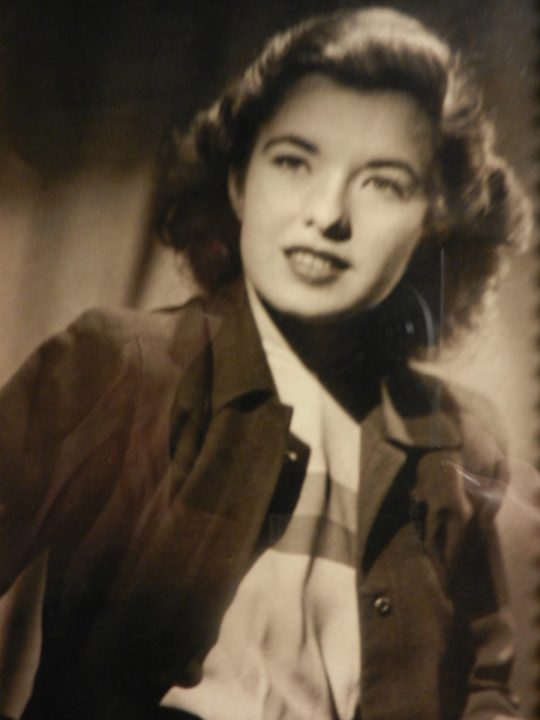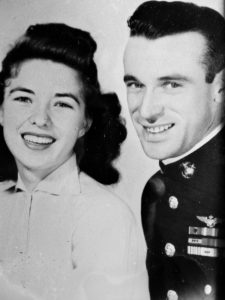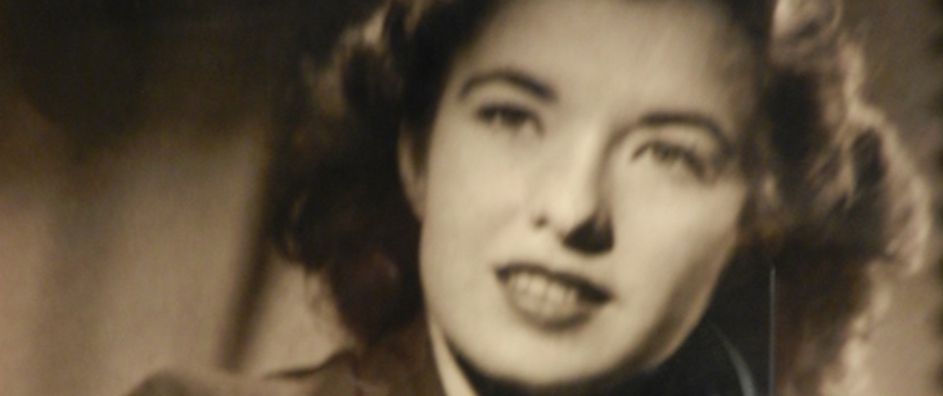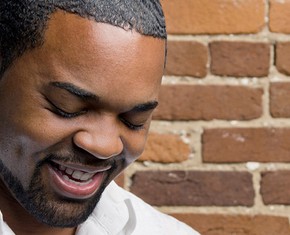The views expressed in our content reflect individual perspectives and do not represent the authoritative views of the Baha'i Faith.
This Mother’s Day, several years after my mom took the mystical road to the next world, I’ll say prayers for the progress of her sweet soul.
Everyone called her Peg, but her real name was Mary Margaret Jamison. Peg had a hard life. Raised in a family with eight children, abused and ignored by an alcoholic mother, made to do all the work of raising several younger siblings when she was still a little girl herself, she finally escaped by eloping with my father at the young age of 20.

Mary Margaret Jamison Langness
At the time, and by her own admission, she probably had the emotional maturity and the worldly wisdom a girl of 12 or 13 has today. My father, a Marine officer harmed and hardened by his combat experiences in World War II, loved my mother—but really had no idea how to make her happy. She was bright, excelling in high school, but in those days women rarely went to college, and her parents felt that only their sons deserved a higher education.
More than anything, my mother wanted knowledge—but instead, she got children. During the next nine years, my mother had seven pregnancies. She lost one child in a miscarriage, and another tragically died three days after his birth. Five survived.
Somehow, though, my mother managed to magically transmute the hardships of her childhood and her adulthood into love for her kids. Today, I marvel at that miracle. I don’t know how she did it, and I’m so enormously thankful that the generosity of her soul made it somehow possible. Instead of repeating the abusive patterns of her own upbringing, and passing them on to my generation, she had the wisdom to raise her children with love, with respect and with equal treatment. Caring, kind and smart, she raised her daughters with the same attention and respect she gave her sons, insisting that all of her children get good educations. She believed in the equality of women and men, and demonstrated it in her actions.
So rather than following the path most parents inevitably do—raising their children exactly as their parents raised them—she put an enormous amount of thought and effort into her child-rearing. She threw out her parents’ practices, and consciously tried to correct the things she had experienced. She wisely sought out, read and applied the newest and best parenting advice she could find. She loved the parenting guidance from Dr. Spock, for example, and applied it diligently. She wanted her children to grow up happy, and not suffer the way she had suffered.
 When my mother wasn’t cooking, cleaning or taking care of the five of us, she was happiest when reading—getting the education that her gender had denied her so long ago. She filled our house with books. She challenged us to learn. Her friends always acknowledged her as the smartest among them, because her relentless drive to educate herself meant she knew things they rarely did. She excelled in knowledge, but stayed humble and kind. As children, our friends always wanted to play at our house, because Peg never dismissed them as mere nuisances, but treated them as complete human beings, worthy of her respect and love.
When my mother wasn’t cooking, cleaning or taking care of the five of us, she was happiest when reading—getting the education that her gender had denied her so long ago. She filled our house with books. She challenged us to learn. Her friends always acknowledged her as the smartest among them, because her relentless drive to educate herself meant she knew things they rarely did. She excelled in knowledge, but stayed humble and kind. As children, our friends always wanted to play at our house, because Peg never dismissed them as mere nuisances, but treated them as complete human beings, worthy of her respect and love.
Perhaps, I’ve always wondered, that explains why all five of her children read widely, searched for more meaning in life and eventually became Baha’is. She never did formally enter the Baha’i community, but she loved Baha’u’llah and his teachings, because she saw what they did for her children.
As I look back on my own childhood now, I know that my brothers and sisters and I became Baha’is because of the values and the love she raised us with. She taught us to think with an open mind, to be fair, to respect all people and consider their needs before we considered our own, to fight for the underdog, to try never to be a source of pain or hurt to another person. Even without always consciously knowing it, she exemplified the Baha’i teachings.
Those teachings call on the world to educate women, who will always be the mothers of future generations:
If the mother is educated then her children will be well taught. When the mother is wise, then will the children be led into the path of wisdom. If the mother be religious she will show her children how they should love God. If the mother is moral she guides her little ones into the ways of uprightness.
It is clear therefore that the future generation depends on the mothers of today. Is not this a vital responsibility for the woman? Does she not require every possible advantage to equip her for such a task? – Abdu’l-Baha, Paris Talks, p. 163.
Yes, women do require “every possible advantage” to equip them for the paramount task of motherhood. My mother didn’t have those advantages, but she fought, her entire life, to gain them. So on this Mother’s Day, I’ll be busy thanking my mom—Mary Margaret Jamison Langness—for her immense kindness, her intentionality, her greatness of heart, her love, her striving to gladden every soul. I’ll thank her, too, for doing everything she possibly could to self-educate, and to pass that love and learning on to her children.
The Baha’i teachings ask us all to express our gratitude for the sacrifices our parents make for us. Today, on Mother’s Day, you may want to consider thanking yours, either in person or in prayer:
Baha’u’llah has placed great emphasis on the duties of parents toward their children, and he has urged children to have gratitude in their hearts for their parents, whose good pleasure they should strive to win as a means of pleasing God himself. – The Universal House of Justice, January 24, 1993, to an individual Baha’i.
















Comments
Sign in or create an account
Continue with Googleor